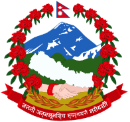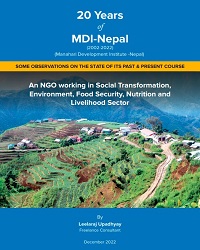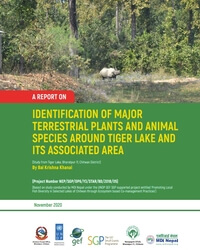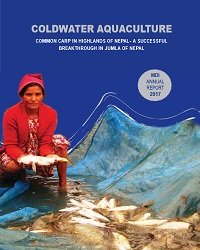welcome to mdi-nepal
Who We Are
Manahari Development Institute-Nepal, is a prominent NGO established in 2001. Based in Makawanpur, it focuses on improving the livelihoods of rural communities through interventions in agriculture, environment, and water sectors. The organization is steered by 9 Board Members of whom four are women, and employs 67 qualified staff members who work across different project districts. MDI-Nepal aims to improve food and income security for vulnerable populations, having reached over 200,000 beneficiaries across 16 districts.
Vision
MDI believes that if poor are sensitized mobilized, organized and judiciously supported they release their creativity and use it efficiently to improve their quality of life and achieve self-reliance. Land and labor being the primary asset of poor, sustainable agriculture development should be the core intervention for their improvement in food security and income.
Mission
Poverty is specific to particular areas and communities, which need to be addressed in holistic manner with infrastructure, technology and institutional interventions. Complete poverty eradication in an area, which has limited resource base, human and institutional capacity, physical inaccessibility, is difficult in the short run. For poverty eradication sustained effort on a long-term basis is required. For this, building partnership between various institutions such as local bodies, donors, government agencies and local communities is important in order to solicit to achieve desired results.
Goal
The main goal of the organization is to empower poor communities in rural areas to undertake development activities at their own initiatives, with the aim of enhancing their livelihoods on a sustained basis through food and income security
What We Do
MDI operates across several key sectors aimed at fostering sustainable development and improving livelihoods. Its initiatives include building institutions and rural infrastructure like roads and water schemes, promoting renewable energy through biogas and solar homes, and supporting agriculture, fisheries, and livestock management. MDI also focuses on capacity building through training and exposure opportunities, empowering communities to thrive and adapt.
Rural Infrastructure Development Works
Livelihood Support Programmes
Health and Nutrition Programme
Environmental Programme
Agroforestry project
Aquaculture Research
Institution Building
Capacity Building
Major Areas of Expertise
Breeding of common carp
Breeding of common carp (Cyprinus carpio) at higher altitude of Nepal.
Small-scale Aquaculture
Eco-friendly small-scale aquaculture with Carp-SIS polyculture …
Sloping Agriculture Land Technology (SALT)
Responsible agroforestry using SALT on degraded lands …
Aquaponics
An integrated aquaponics model that cultivates fish and vegetables together.
Carp-SIS technology in fish farming
Agroforestry for Sloping Lands
Aquaculture in highlands of Nepal
Hybridized drinking water system
Aquaponics
On going Innovations
In the past 20 years, MDI has introduced helpful technical and social innovations to support communities in improving agricultural production, resource management, and rural infrastructure. Current projects include Carp-SIS technology for fish farming, agroforestry for sloping lands, and aquaculture in Nepal’s highlands. MDI is also working on a hybrid drinking water system and exploring aquaponics to boost food security and sustainability. These initiatives demonstrate MDI’s commitment to enhancing local infrastructure and promoting sustainable development.

On going Innovations
In the past 20 years, MDI has introduced helpful technical and social innovations to support communities in improving agricultural production, resource management, and rural infrastructure. Current projects include Carp-SIS technology for fish farming, agroforestry for sloping lands, and aquaculture in Nepal’s highlands. MDI is also working on a hybrid drinking water system and exploring aquaponics to boost food security and sustainability. These initiatives demonstrate MDI’s commitment to enhancing local infrastructure and promoting sustainable development.

Carp-SIS technology in fish farming
Aquaculture in highlands of Nepal
Agroforestry for Sloping Lands
Hybridized drinking water system
Aquaponics
Recent Posts
Featured Reports and Case Studies
Our impact
Area of Operation
Disctricts
Households
Have Benifited
Planted
fruits and plants
Rural Road
Constructed
National and
International Awards
MDI-Nepal has received various national and international awards over the years, recognizing its significant contributions to development.

Partnerships and Collaborations
Since its establishment, MDI Nepal has continuously strived for collaborative partnerships with both national and international agencies to achieve the common goals of poverty alleviation, food security, and securing livelihoods for the most vulnerable and marginalized populations in Nepal.
Over the last two decades, MDI Nepal has successfully partnered with several government agencies, UN bodies, INGOs, and NGOs in the livelihoods, food security, nutrition, income generation, and environment sectors. It has earned the trust of numerous agencies and donors and has been entrusted with financial resources to implement community-based activities across the country.
To date, MDI Nepal has collaborated with:
– UN World Food Programme (WFP)
– UN Food and Agriculture Organization – (FAO)
– UNDP/GEF
– DANIDA
– GIZ
– Poverty Alleviation Fund (PAF)
– World Wildlife Fund (WWF)
– Agriculture University Rampur, Nepal
– Bangladesh Agricultural University
These partnerships have allowed MDI Nepal to make significant contributions towards improving the lives of the most vulnerable communities in the country.
Supported by










MEDIA COVERAGE
Rare & Nutritious Fish(MARA, POTHI & DEDHUWA) Found in Chitwan | Rhino Lake | Tiger Lake – MDINEPAL
PUBLC TALK SHOW on Carp-SIS Aquaculture in Handikhola by JANATA TELEVSION












